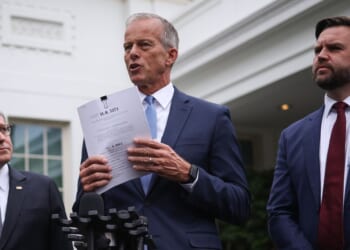
A Scene Carved by Nature and Captured by Luck
Picture this: You and a group of sightseers on a small boat near Seattle find yourselves in the middle of a natural scene —a raw, unforgiving drama. You’re trying to enjoy time on the water when, out of nowhere, a harbor seal, escaping a coordinated orca hunt, uses the boat’s swim platform as a last refuge.
Things play out like a true cliffhanger. The orcas slap the water to jolt a slip, forcing the seal to slip off the boat, only to climb back up to safety, and it happens over and over.
Wash. Rinse. Repeat.
After 15 minutes, the orcas finally give up and swim away. Photographers onboard catch an unfiltered look at wilderness in action that needs no explanation.
For an industry with approval ratings lower than pond scum, this serendipitous scene feels like a small win for a press corps that all too often shapes moments rather than records them.
Natural Law and the Old Order of Predator and Prey
Cold water enforces rules older than any human society; orcas hunt to survive, and seals must evade to see tomorrow. There are no heroes or villains, just a contest shaped by instinct and timing. The only reward the seal earns is a breath and heartbeat, while the orcas suffer no moral failures after retreat.
The world simply moves forward.
It’s a cold precision that carries a strange clarity of power, not guaranteeing a victory or escape, and safety doesn’t guarantee safety. Everything depends on readiness and reaction — a seal that hesitates surrenders ground, while an orca pod that miscalculates loses a meal: such a small margin separating survival from retreat.
A Parallel for a Press Corps Searching for Its Bearings
A profession built on fact and vigilance lost its own instincts over the past several decades. Chasing narratives rather than the truth, too many outlets have lost public trust because a segment of the public turned away after feeling lectured, misled, or framed as adversaries by what was once a watchdog that drifted into the water without a sexton.
In a vast ocean, a seal leaping onto a boat feels tiny, yet there lies a hint for journalists. A refuge appears only when instincts survive; a seal chose full speed and took an opportunity without a guarantee.
Reporters and editors can do the same; a profession doesn’t recover by force, it begins through small, credible acts that rebuild confidence. Good reporting, honest framing, facts before emotion.
The seal climbs into a boat to gain distance from danger, and journalists can do something similar by stepping away from distortion and returning to clarity built on observation, humility, and earned trust.
The Boat as Neutral Ground
There were rescue intentions on the boat; it simply found itself in the right place at the right time when the seal acted first on neutral ground.
That neutral ground mirrors the concept of a newsroom that chooses accuracy over spectacle, a place where truth finds footing even when political pressure crashes around the hull.
A modern newsroom that remembers its purpose becomes a boat strong enough to hold a frightened truth for only a moment —not forever or with fanfare. Only long enough for its audience to see something real again.
Orcas at the Edge and a Press in the Middle
Predators don’t stop circling, and pressure doesn’t stop building. The press is being pounded on all sides by shifting technology, aggressive partisanship, and audience fatigue. Yet, the seal’s escape shows that panic doesn’t defeat pressure: strength, timing, creative thinking, and awareness do. A single moment pulls a survivor out of danger and into a realm of possibility.
It’s a lesson for the news industry: a return to purpose doesn’t need a grand speech or sweeping reform; renewal begins with a reporter who observes cleanly, an editor who trims storytelling clutter, and a photographer who documents a seal fleeing a pod without inserting ego into the frame.
Hope grows from honest work repeated over time; a seal’s climb saved its life — a profession’s revival needs a similar climb toward credibility.
Final Thoughts
A seal slipping onto a boat to save its hide carries a message I’ve been telling my daughters: tell the truth because it never demands a second draft. You don’t need to memorize a defense when you never build one; a clean account stays clean; a bad one keeps you up at night rewriting the details until you forget which lie covered which mistake.
I’ve told my girls that for years, which is something I work hard to follow, even when I have to admit I misread, misquote, or trusted somebody I shouldn’t have. If I’m wrong, correct it; if new information reshapes the picture, I need to acknowledge it. It’ took bruises and blows to the ego before I started living by a simple motto: do what you say, say what you do, and if wrong, apologize. Integrity grows from the willingness to admit, “I missed that,” not from digging a trench around pride.
Modern journalism once operated under that rule. Then Watergate came along and rewired a generation of reporters. A legitimate exposé morphed into a creation myth; the fourth estate convinced itself that it wasn’t simply reporting the story, but starring in it.
The press corps adopted an inflated sense of destiny and started confusing the power to reveal the truth with the authority to define it. It’s a shift that spawned a class of journalists more interested in being heroes than historians, focused on steering public emotion rather than documenting what actually happened.
Pretending to be mighty doesn’t allow a seal to survive; it survives by reacting honestly and climbing towards the only stable platform within reach.
Reporters need to live using that same instinct because the truth is the only stable platform left. Any profession choosing truth over narrative, correction over pride, and humility over mythology can still recover its footing.
When reporters return to the basics, they will rebuild the industry they squandered, not because they’re perfect, but because they’re accountable.
Strengthen Reporting that Still Tells the Truth
Join PJ Media VIP and support work that avoids spin, respects readers, and digs for facts with integrity. Your subscription keeps independent journalism steady in an era full of noise. Become a member today and help build a stronger press for a country that deserves one. Use code FIGHT for 60% off.

















